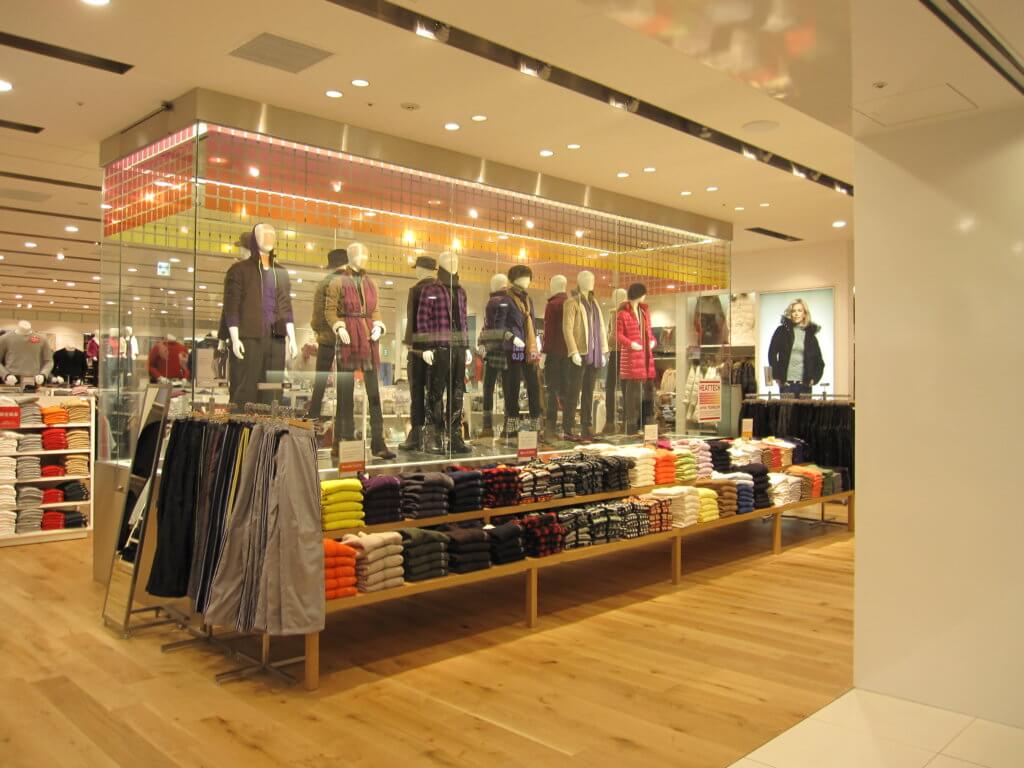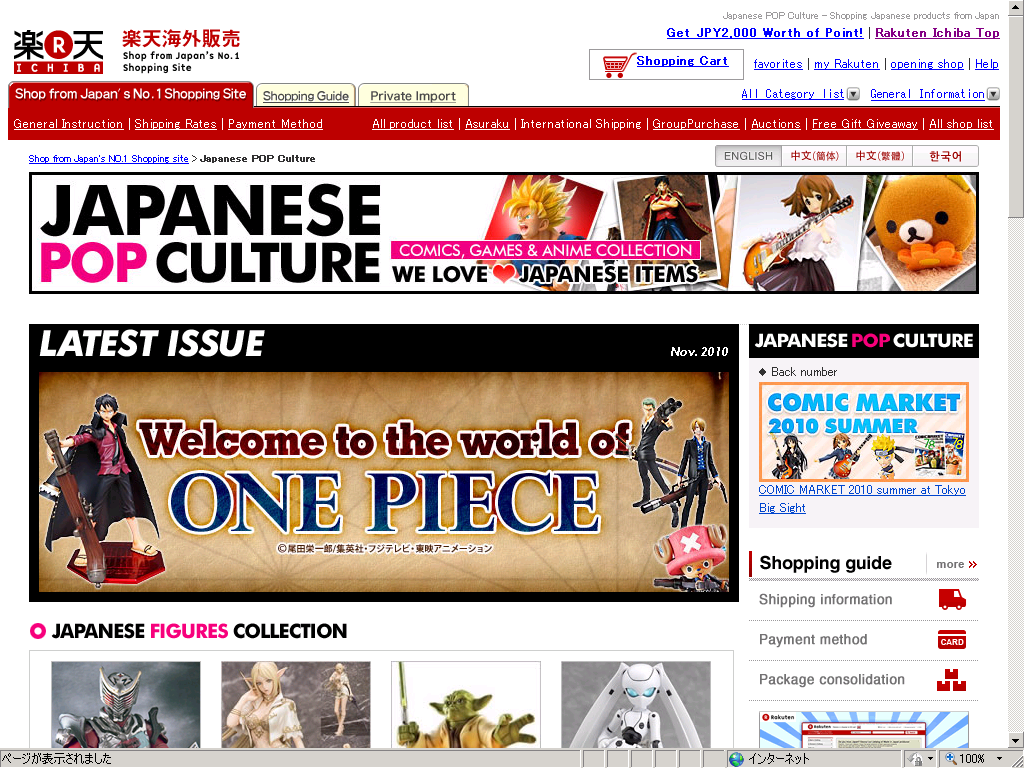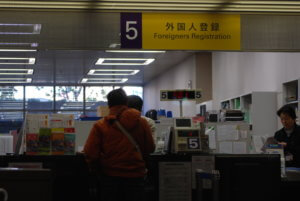Foreigners Working in Japanese Companies
CONTENTS
Speaking English Is Now Prerequisite on Business in Japan
“Money talks,” they say. In Japan nowadays, many businesspeople believe money speaks English.
Some prominent Japanese firms are adopting English as their official language, most notably Rakuten, an online retail service company, and Fast Retailing, the parent company of the popular Uniqlo chain of clothing stores. Many others are looking for employees who can speak English, or encouraging their existing employees to learn it. A Japanese auto-parts company called U-Shin even made news last year when it had to take out a newspaper ad for the position of CEO because the existing management thought it was essential to have a leader who could communicate in English, yet they hadn’t been able to find one among their own ranks.
For decades, Japan has been one of the world’s richest nations, a producer of leading-edge technology and the home of some of the most famous international brands. So why is interest in business English suddenly on such a major upswing?
Japan's Dwindling Population
“Japan is a very big market,” Prof. George Olcott of the University of Cambridge’s Judge Business School recently told Japan Close-up. “Many firms have been totally reliant on this market. It has served them OK, because it is very large. But you’ve got two things at work. First of all the demographic change, which means this market is shrinking…There are enormous pressures on companies being [dependent on a market that is] purely Japanese. So they’ve got to start looking overseas. The second issue is the rise of China.”
Japan’s demographic changes, driven by a rapidly aging population and a chronically low birth rate, were dramatically underlined early this year when the government announced that deaths had outnumbered births by 123,000 in 2010, for the fourth straight year of population shrinkage and the biggest one-year drop in more than 60 years. The decline has been especially pronounced at the younger end of the age spectrum, with the 2011 cohort of new adults (20-year-olds) hitting a record low for the fourth consecutive year and dropping below 1 percent of the total population for the first time ever.

Consequently, the number of potential customers for many goods and services is shrinking in Japan, forcing many companies to pay more attention to markets overseas.
Two of Japan’s most iconic industries, brewing and car manufacturing, have already been hard-hit. In 2010, beer sales in Japan marked their sixth straight year of decline. New car sales in the nation rose in 2010 for the first time in seven years, thanks to temporary government subsidies for eco-friendly vehicles, but the decline resumed when the subsidies expired. (Even used car sales were down – for the 10th straight year.)
Importance of the Market in China
Meanwhile, China is seen as having overtaken Japan in the position of the world’s second-largest economy after the United States. This could be a relief for Japanese companies that see a new customer base, or a challenge for Japanese companies that see new competitors. In either case, companies must become more internationally competitive. This means having employees speak Chinese for direct engagement, or English for the wider world stage.
But in a 2010 white paper titled “Charting a New Course for Growth,” the American Chamber of Commerce in Japan painted a bleak picture of the current Japanese workforce in this regard: “The top management of Western-based multinational companies and professional services firms regularly express frustration over the difficulty of recruiting strong, assertive English speakers in Japan, when at the same time their China offices are full of Chinese who are fluent in English and participate vigorously in company discussions. Even many executives at Japanese companies express frustration at the lack of English capabilities among their employees…”
Need Be More Like Dreamers
Daisuke Hase, a spokesman for Fast Retailing, told Japan Close-up that some Japanese companies have become pessimistic and defensive in such a climate. But he stressed that his own firm is bucking that trend.
“We have no time to be pessimistic. We need to be more like dreamers, more optimistic, and at the same time challenging [ourselves] and having the passion to become No. 1,” he said.
People looking at the future prospects of Japanese companies “may find a pessimistic point of view by looking at the Japanese market. But if you look at the market on a global scale, we have increasing population. For example, China next door is rapidly growing. More people are becoming wealthy. They have more purchasing power,” Hase said.
Selling in the World Online
Fast Retailing intends for some of that purchasing power to be exercised in its stylish but economical Uniqlo clothing stores, which are highly popular in Japan and have also spread to Asia, Europe and the United States, or in one of the foreign clothing retailers that the firm has acquired in recent years, such as U.S.-based Theory or France-based Princesse Tam.Tam.

Hase linked the company’s English policy to the continuation of its growth: “As we are growing to be a global player…we believe there will be a lot of people [in the company] outside of Japan: people from France, people from the U.S., people from China – anywhere in the world. And then we will need to have one common language, of course, and we chose English as our business common language.”
Fast Retailing has set the goal of having all full-time employees who are not already fluent in English achieve a score of 700 or higher on the standardized Test of English for International Communication (TOEIC) by next year, he said.
Meanwhile, Rakuten, which runs the Rakuten Ichiba online shopping mall through which 30,000 Japanese retailers offer their wares, is globalizing in a similar way. Not only are they expanding the reach of Rakuten Ichiba to customers overseas, but they too have made foreign acquisitions, such as Buy.com in the United States and PriceMinister in France.
“We are establishing our online malls in various countries, and then at the same time we are creating a global marketplace,” Rakuten spokesman Enkhtur Batsuren told Japan Close-up. “So eventually anyone in the world can buy anything through our global marketplace. So it’s not just American customers buying Japanese products from Rakuten Ichiba, but French customers or Thai customers buying from, let’s say Rakuten Taiwan and so on.”
“We need a lingua franca that anyone can understand within our group,” he said.
Last year, Rakuten began to use English sometimes in morning meetings, reports and some conversations, and it will become the firm’s official language in April 2012, with all employees expected to be able to speak it by then, according to Naoki Mizushima, another Rakuten spokesman.
“Our situation is maybe in the next two or three years, our environment will be drastically changed. More and more foreigners, English-speaking people, are coming to our company. If we try to open a meeting, at least one or two people will be non-Japanese. So naturally we have to use English as the official language. Now, even between Japanese, we are trying to use English, but in the next two years conversations only between Japanese [people] will be a very rare case,” Mizushima said.
English As a Business Tool
Fast Retailing and Rakuten may be Japan’s most ambitious companies when it comes to embracing the English language, but they are not the only ones.

Soon after Carlos Ghosn became the CEO of Japanese automaker Nissan in 1999, he encouraged the use of English within the company to facilitate its then-new alliance with French automaker Renault. Acknowledging that English was not the native language of either side, Ghosn told The Daily Yomiuri newspaper in 2002, “English is the software which is needed in the global economy.”
A Nissan spokesman told Japan Close-up that employees there today have the opportunity to learn English, but it is not required of everyone. “Every time we have to talk in English, we do,” he said. “For Americans it is a lot harder to speak in Japanese than we speak in English.”
Similarly, the Japanese business magazine Shukan Diamond reported – in a January article titled “No Escape from English” – that after Japanese truck and bus manufacturer Mitsubishi Fuso was acquired by Germany’s Daimler automotive group in 2004, Mitsubishi Fuso’s German CEO also decided to make English an official language.
The magazine also mentioned that Panasonic now recruits most of its new workers from overseas, that Nomura Holdings offers higher starting pay to new hires with high TOEIC scores, and that manufacturer of electric motors Nidec will make multilingualism a prerequisite for management promotions starting in 2015.
At Toyota, one of Japan’s most internationally prominent companies, a spokesman told Japan Close-up, “We encourage all of our employees to study English, and there are of course rewards for getting certain scores in TOEIC tests,” but there is no company-wide goal for adopting English.
Threat to Japanese Culture?
Not everyone is happy about this trend. Commenting on the policies of Rakuten and Fast Retailing in an interview with the Asahi Shimbun newspaper, Tsukuba University Prof. Yukio Tsuda decried English “hegemony” and said, “This country needs to treat its own people and language with more respect.” And in an interview with The Yomiuri Shimbun newspaper, Ochanomizu University Prof. Masahiko Fujiwara predicted the firms’ efforts would fail, declaring, “It is an illusion that companies’ international competitiveness will improve if English is made an in-house official language,” and, “If the globe is painted all over in English, cultures flourishing magnificently in each country would perish.”
But spokesmen for the two companies deny their efforts pose any cultural threat. In fact, they seem proud of their Japanese-ness.
When Fast Retailing last year announced its plan to recruit 50 management trainees from the United States, it stressed that the Americans would be given six months of training in Japan. The company’s website informed potential applicants: “We believe that Japan, the origin of the company, is the most suitable environment to understand and experience the UNIQLO corporate culture and work-style. We want you to become a ‘UNIQLO DNA Carrier’ worldwide.”
When asked how Fast Retailing balances using English and preserving its Japanese identity, Hase answered: “I think the topics are perfectly separate. One is English as a common language, as a communication tool. The second one is our identity of ‘made in Japan’ or ‘born in Japan.’ English as a common language or a communication tool is just like using a mobile phone, or maybe using a Mac or Windows. It’s just a tool. So it doesn’t make any [difference] in terms of our culture or our behavior or our beliefs.”
“We want you to enjoy shopping in a very clean place, a very neat and tidy place, where there is no dust, of course, no messy products, everything folded up,” he said, indicating one Japanese aspect of the Uniqlo experience.
Also, in contrast to the aggressive approach of some American salespeople, which Hase characterized as “Hey, how are you? My name is John. Blah, blah, blah. Tell me what you want,” the obtrusive Uniqlo approach “is to greet you and then just leave you, but to make sure that you will find the product that you want in a very short time. And if you are not sure where the product is, just ask us and we will guide you…That’s what a Japanese shopper wants, from the shopper’s psychology standpoint. And we believe that people all over the world want to be served as so.”
“To have that kind of hospitality, I would say, it’s more like Japan DNA,” he said.
Rakuten’s representatives also denied they were harming Japanese culture. “In India, their official language is English. But Indian culture is not destroyed by that,” Batsuren said.
Moreover, Rakuten actually promotes Japanese culture through Japanese products. “We have online a catalogue of Japanese sake and shochu, and we are collaborating with individual breweries to promote them internationally,” Batsuren said.
“For example, sake for American people is just sake, Japanese sake. But we have many tastes, like bitter ones or sweet ones…So we are showing how to choose each sake for specific occasions,” added Takayuki Nakamura, another Rakuten spokesman.
“We have an online page [in English] that is dedicated to products from Gifu Prefecture, with an introduction from the governor of Gifu,” Batsuren said.
Rakuten’s efforts, which they call “Englishnization,” also serve a broader and more ambitious purpose. As the company expands into multiple markets around the world, they are trying to avoid what American businesspeople call “the silo effect,” a problem in which separate parts of a large organization fail to communicate with each other.
“We need to share information or know-how,” Mizushima said. “Like we have some know-how in France, but we want to introduce that know-how to other areas. For that, the staff-level people should exchange the know-how [directly]. And if onlythe management people exchange information it is too late in going down to the staff level [in other countries].”
Batsuren gave a real-life example. “There’s a team which is in charge of running a Facebook page in Taiwan, and they were successful. So to propagate that success, they are educating other similar teams in other marketplaces so they can repeat the success in their local marketplaces.”
“We’d like to connect each [online] mall in like a mesh-type cross-border business,” Nakamura said.
But being hyperconnected does have some drawbacks.
“I communicate with people around the world every day. For example, having a meeting at very end of the evening with France, and then in the morning we have a telephone conference with the USA or something like that. So my concern is that globalism sometimes makes our worktime longer.”


